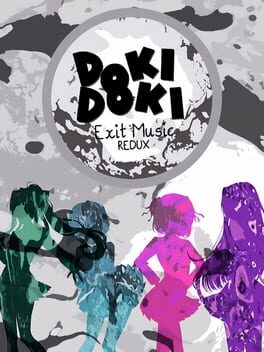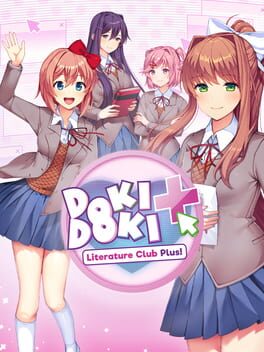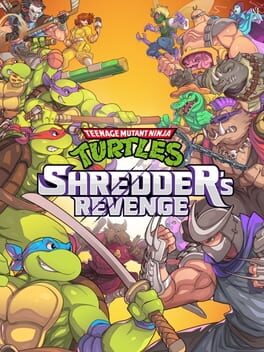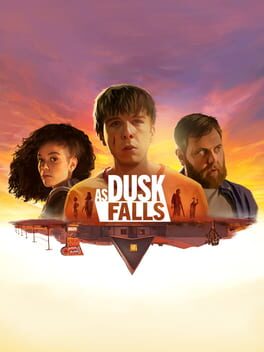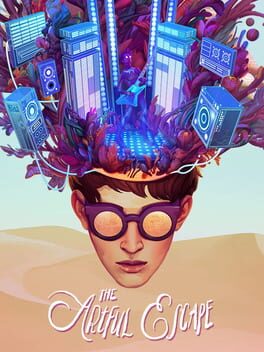Cheeesyy
Before I say anything about this mod, I want to make it clear that even though I'm giving it five stars and speaking highly of it in this review, I DO NOT recommend anyone to play this mod. I wouldn't recommend it to absolutely anyone, mainly because I believe the mod creator did not intend to please anyone who played it. This mod is one of the most cynical and nihilistic things I've ever seen in a game; it's literally a tragedy, and you won't derive anything enjoyable from this experience. That said, if you do decide to play, know that you've been warned—what you will see in this mod will leave a personal mark on you for weeks.
Man... I don't even know where to start with this review, as much of what I could say might potentially spoil the experience for those reading who intend to play. But let's start from the beginning, I suppose. After completing Doki Doki Literature Club for the first time in seven years, I was left with a feeling of wanting more, especially since the extra stories that came with Doki Doki Literature Club Plus! were quite weak in my opinion, more resembling “fanfic” than actual extra content. So, looking into some additional aspects of the game, like the “Project Libitina” theory, I found some mods that expand on the story, and this specific one, Doki Doki Exit Music, caught my attention because everyone was talking about how sad and depressing it was. Due to my morbid curiosity about why such claims were made, I discovered one of the darkest games I've come across.
I have no idea what the creator of this game went through in their personal life to write such a hopeless and deeply personal story, but it's clear that this story reflects some part of the creator's life. I won't lie—during the first chapter, I wasn't enjoying playing it; things were quite slow, and the heavy themes presented didn't seem to be handled with the seriousness they deserved. However, it was in the following chapters that I noticed this story had something special; it was better than the original game's story, and I feel readers of Oyasumi Punpun or Aku no Hana wouldn't be disappointed by this work because yes! It's that kind of story...
Regarding the game's features, the art style is quite cute for a mod, but it changes drastically in quality from one moment to the next, indicating that different people contributed art to this game. When transitioning between different art styles, you feel a certain change in tone because the mod doesn't adhere to a fixed style. The soundtrack is incredibly good, with remixes of Radiohead songs that are amazing and provide a unique soundtrack for this game. But now, speaking of the story... If I could summarize this entire game in one sentence, it would be 'unsettling.' The story is torturous and psychologically much heavier than the original; I simply felt exhausted playing because I couldn't stay calm, constantly expecting the worst to happen at any minute. The insecurity about what could happen, the feeling that things were out of control and could collapse from one second to the next—this anguish followed me from the beginning to the end of the game. This was one of the few games that genuinely made me cry due to its tragic ending, which... I'd rather not remember.
The protagonist's relationship with Natsuki is very well done and explored. You truly feel like you're in the protagonist's shoes, experiencing their despair as everything falls apart before their eyes without knowing what to do, and how they are corroded as the story progresses until they reach their limit. The dialogues are well crafted, and you feel the characters changing over time. The game's duration is quite short (for a visual novel), though I honestly wished to learn more about Yuri and Monika because unfortunately, they felt sidelined without a satisfying conclusion to their stories. I finished it in a single day and felt completely exhausted when I was done. Even though I wanted to sleep, I could hardly do so because I kept thinking about what I had just read, and whether I liked it or not, I will carry this story with me, much like its creator.
This game is divine and even better than the original; it's the best and most cruel fan game of Doki Doki Literature Club!
Man... I don't even know where to start with this review, as much of what I could say might potentially spoil the experience for those reading who intend to play. But let's start from the beginning, I suppose. After completing Doki Doki Literature Club for the first time in seven years, I was left with a feeling of wanting more, especially since the extra stories that came with Doki Doki Literature Club Plus! were quite weak in my opinion, more resembling “fanfic” than actual extra content. So, looking into some additional aspects of the game, like the “Project Libitina” theory, I found some mods that expand on the story, and this specific one, Doki Doki Exit Music, caught my attention because everyone was talking about how sad and depressing it was. Due to my morbid curiosity about why such claims were made, I discovered one of the darkest games I've come across.
I have no idea what the creator of this game went through in their personal life to write such a hopeless and deeply personal story, but it's clear that this story reflects some part of the creator's life. I won't lie—during the first chapter, I wasn't enjoying playing it; things were quite slow, and the heavy themes presented didn't seem to be handled with the seriousness they deserved. However, it was in the following chapters that I noticed this story had something special; it was better than the original game's story, and I feel readers of Oyasumi Punpun or Aku no Hana wouldn't be disappointed by this work because yes! It's that kind of story...
Regarding the game's features, the art style is quite cute for a mod, but it changes drastically in quality from one moment to the next, indicating that different people contributed art to this game. When transitioning between different art styles, you feel a certain change in tone because the mod doesn't adhere to a fixed style. The soundtrack is incredibly good, with remixes of Radiohead songs that are amazing and provide a unique soundtrack for this game. But now, speaking of the story... If I could summarize this entire game in one sentence, it would be 'unsettling.' The story is torturous and psychologically much heavier than the original; I simply felt exhausted playing because I couldn't stay calm, constantly expecting the worst to happen at any minute. The insecurity about what could happen, the feeling that things were out of control and could collapse from one second to the next—this anguish followed me from the beginning to the end of the game. This was one of the few games that genuinely made me cry due to its tragic ending, which... I'd rather not remember.
The protagonist's relationship with Natsuki is very well done and explored. You truly feel like you're in the protagonist's shoes, experiencing their despair as everything falls apart before their eyes without knowing what to do, and how they are corroded as the story progresses until they reach their limit. The dialogues are well crafted, and you feel the characters changing over time. The game's duration is quite short (for a visual novel), though I honestly wished to learn more about Yuri and Monika because unfortunately, they felt sidelined without a satisfying conclusion to their stories. I finished it in a single day and felt completely exhausted when I was done. Even though I wanted to sleep, I could hardly do so because I kept thinking about what I had just read, and whether I liked it or not, I will carry this story with me, much like its creator.
This game is divine and even better than the original; it's the best and most cruel fan game of Doki Doki Literature Club!
In November 2017, while browsing the internet using my dad's computer, I discovered a small game on itch.io: a freeware dating sim called Doki Doki Literature Club! At that time, I was an ignorant, otaku kid who wanted to avoid math homework at all costs, so I decided to check it out that afternoon. It looked cute and was free, so I figured there was no harm.
Well, if you didn't already know that Doki Doki Literature Club Plus! is now marketed as a psychological horror game, you can probably guess how that afternoon turned out.
Why mention this? Because, despite my best efforts to reevaluate Plus with a new perspective, that November afternoon is deeply intertwined with my opinion of the game. Before it became a controversial western Visual Novel, before appearing in countless Let's Plays and Game Theory videos, before spawning marketable merchandise you could find in stores, it was just a subversive freeware horror game I was completely fascinated by. The lack of discussion about DDLC at the time meant that the glitch horror and metafiction elements caught me completely off guard. All its Creepypasta-tier parlor tricks and fourth-wall-breaking meta-puzzles worked wonders on me, as I had never encountered that kind of storytelling in games before. Discovering how to finish Act 3 was mind-blowing. I didn't even know games could do things like that!
But as I write this, seven years have passed, and a lot has changed since then: my interests have evolved, I am a different person now, and I have explored many other genres and experiences. Even back then, DDLC was already outdated compared to games like Eversion, Irusu Syndrome, and You & Me & Her: A Love Story. Now, glitch and meta-horror have become saturated storytelling brands on the internet. The conversations around it and its legacy are now heavy with both success and controversy. Revisiting it after so long, I worried that seeing it with fresh eyes would retroactively ruin the experience, like finally beating your dad in basketball and realizing he was never that good, you were just inexperienced.
In a way, it was ruined. The scares that once surprised me now don't work, both because I expected them and because the jump scares and glitch effects now seem juvenile and cliché. The cynicism in the text is more apparent, with its sly jabs at "anime and dating-sim tropes" taking on a more overtly cynical tone considering the game's origins. It was born out of Salvato's love-hate relationship with slice-of-life anime, and the game's parody aspect generalizes all visual novels as dating sims, showing a level of ignorance and contempt for its own medium and history. This trend of developers holding contempt for their own medium and inspirations isn't new (see: Necrobarista, YiiK), but ironically, DDLC shines most when indulging in the tropes it mocks.
Despite the supposed horror elements being central to both the marketing and cultural legacy of the game, DDLC excels most as a pastiche Visual Novel. Even if the main girls fall into the generic trope of "cute broken girl for generic MC to fix via high school romance," the main cast and their struggles are relatable, and Sayori's depiction of depression resonated deeply with me and many others (even if Yuri's self-harm is treated more exploitatively). Plus' new side stories, which remove the horror elements and focus on more realistic, slice-of-life stories about communication and mental illness treated with tact, become engaging and heartwarming in a way that, ironically, aligns with what the base storyline once sought to criticize.
However, separating my personal experience, I wouldn't recommend DDLC+. Its horror is now weak and outdated, and since that’s the angle the game is marketed with and most known for, it’s hard to enjoy it from that perspective. It’s confused about what it wants to be, and even if its strengths lie elsewhere, hardcore VN enthusiasts won’t be impressed with what both DDLC and Plus offer. It’s a game you had to experience at the time to fully appreciate. Even if I wouldn't recommend it now, I can't bring myself to call it bad with the vitriol others seem to have. It was important to me, as a gateway to Visual Novels and as a game. It reminds me of a significant time in my life, even if it wasn’t entirely positive.
Well, if you didn't already know that Doki Doki Literature Club Plus! is now marketed as a psychological horror game, you can probably guess how that afternoon turned out.
Why mention this? Because, despite my best efforts to reevaluate Plus with a new perspective, that November afternoon is deeply intertwined with my opinion of the game. Before it became a controversial western Visual Novel, before appearing in countless Let's Plays and Game Theory videos, before spawning marketable merchandise you could find in stores, it was just a subversive freeware horror game I was completely fascinated by. The lack of discussion about DDLC at the time meant that the glitch horror and metafiction elements caught me completely off guard. All its Creepypasta-tier parlor tricks and fourth-wall-breaking meta-puzzles worked wonders on me, as I had never encountered that kind of storytelling in games before. Discovering how to finish Act 3 was mind-blowing. I didn't even know games could do things like that!
But as I write this, seven years have passed, and a lot has changed since then: my interests have evolved, I am a different person now, and I have explored many other genres and experiences. Even back then, DDLC was already outdated compared to games like Eversion, Irusu Syndrome, and You & Me & Her: A Love Story. Now, glitch and meta-horror have become saturated storytelling brands on the internet. The conversations around it and its legacy are now heavy with both success and controversy. Revisiting it after so long, I worried that seeing it with fresh eyes would retroactively ruin the experience, like finally beating your dad in basketball and realizing he was never that good, you were just inexperienced.
In a way, it was ruined. The scares that once surprised me now don't work, both because I expected them and because the jump scares and glitch effects now seem juvenile and cliché. The cynicism in the text is more apparent, with its sly jabs at "anime and dating-sim tropes" taking on a more overtly cynical tone considering the game's origins. It was born out of Salvato's love-hate relationship with slice-of-life anime, and the game's parody aspect generalizes all visual novels as dating sims, showing a level of ignorance and contempt for its own medium and history. This trend of developers holding contempt for their own medium and inspirations isn't new (see: Necrobarista, YiiK), but ironically, DDLC shines most when indulging in the tropes it mocks.
Despite the supposed horror elements being central to both the marketing and cultural legacy of the game, DDLC excels most as a pastiche Visual Novel. Even if the main girls fall into the generic trope of "cute broken girl for generic MC to fix via high school romance," the main cast and their struggles are relatable, and Sayori's depiction of depression resonated deeply with me and many others (even if Yuri's self-harm is treated more exploitatively). Plus' new side stories, which remove the horror elements and focus on more realistic, slice-of-life stories about communication and mental illness treated with tact, become engaging and heartwarming in a way that, ironically, aligns with what the base storyline once sought to criticize.
However, separating my personal experience, I wouldn't recommend DDLC+. Its horror is now weak and outdated, and since that’s the angle the game is marketed with and most known for, it’s hard to enjoy it from that perspective. It’s confused about what it wants to be, and even if its strengths lie elsewhere, hardcore VN enthusiasts won’t be impressed with what both DDLC and Plus offer. It’s a game you had to experience at the time to fully appreciate. Even if I wouldn't recommend it now, I can't bring myself to call it bad with the vitriol others seem to have. It was important to me, as a gateway to Visual Novels and as a game. It reminds me of a significant time in my life, even if it wasn’t entirely positive.
Games of this genre were never my thing, but I had a lot of fun with this one from start to finish.
It's a great game to play with your mind turned off. Throw flying kicks and punches at everyone on screen, move forward, face a boss, repeat the cycle.
The amazing soundtrack and the beautiful art of the game complement the experience, which is unquestionably much more enjoyable when shared with a friend.
It's a great game to play with your mind turned off. Throw flying kicks and punches at everyone on screen, move forward, face a boss, repeat the cycle.
The amazing soundtrack and the beautiful art of the game complement the experience, which is unquestionably much more enjoyable when shared with a friend.
2022
You know when you find 'that' game that touches you on a personal level? Well, that's how I feel about this game. Given the success and rise of games that follow this methodology, like Telltale's Walking Dead series or Heavy Rain, this subgenre of games, the 'narrative games,' has grown rapidly. Since its emergence with Heavy Rain, they have always captivated me, despite not having the means to play them and having to settle for watching others play.
As Dusk Falls is the first game of this genre that I actually played myself rather than just watching someone else play. I can say that it wasn't just a game for me; it was an experience that deeply impacted me—its moral dilemmas, characters, and even its storyline. Even though it doesn't bring major innovations to its genre, it still delivers one of the most emotional stories I've experienced, perhaps one of the best for its genre of game.
Something worthy of praise, and rarely found, are games where your choices REALLY alter the course of the story significantly. As Dusk Falls honestly stands out to me as the best game in this style that accomplishes this, creating profound dilemmas for the player that constantly test them with extremely difficult moral choices, as you're practically always playing with both sides of the coin—both the villains and the good guys.
But I think where this game truly shines for me is in Chapter 3, where Jay's relationship with his father is shown. Jay was a character I knew I would identify with (more than I'd like to admit) from his first appearance. Seeing the tumultuous relationship he has with his father, and how despite being hated, he still tries to forgive him for what he did to his own family, even though his father is a scoundrel who only thinks of himself, choosing to understand and respect him despite everything. After all, Jay's father was the only one in the Holt family who showed him any compassion during the game.
Perhaps because it's a short game, I got the impression that some loose ends were left aside throughout the plot, which could be a problem or not, depending on the developer's plans for a possible sequel—which I would love.
Overall, As Dusk Falls is incredibly good for fans of engaging stories with big twists and lots of tension.
As Dusk Falls is the first game of this genre that I actually played myself rather than just watching someone else play. I can say that it wasn't just a game for me; it was an experience that deeply impacted me—its moral dilemmas, characters, and even its storyline. Even though it doesn't bring major innovations to its genre, it still delivers one of the most emotional stories I've experienced, perhaps one of the best for its genre of game.
Something worthy of praise, and rarely found, are games where your choices REALLY alter the course of the story significantly. As Dusk Falls honestly stands out to me as the best game in this style that accomplishes this, creating profound dilemmas for the player that constantly test them with extremely difficult moral choices, as you're practically always playing with both sides of the coin—both the villains and the good guys.
But I think where this game truly shines for me is in Chapter 3, where Jay's relationship with his father is shown. Jay was a character I knew I would identify with (more than I'd like to admit) from his first appearance. Seeing the tumultuous relationship he has with his father, and how despite being hated, he still tries to forgive him for what he did to his own family, even though his father is a scoundrel who only thinks of himself, choosing to understand and respect him despite everything. After all, Jay's father was the only one in the Holt family who showed him any compassion during the game.
Perhaps because it's a short game, I got the impression that some loose ends were left aside throughout the plot, which could be a problem or not, depending on the developer's plans for a possible sequel—which I would love.
Overall, As Dusk Falls is incredibly good for fans of engaging stories with big twists and lots of tension.
2021
The Artful Escape is a visually stunning, emotionally engaging, and audibly wonderful game. It perfectly encapsulates the creative freedom that indie games can offer. Honestly, I'm running out of superlatives to describe this experience. Almost everything in this game is impressive.
Normally, gameplay isn't my top priority. Sure, I enjoy games like Enter the Gungeon for the mechanics, but especially with indie games, I value a good narrative and an immersive experience more. And The Artful Escape offers plenty of that. However, for some reason, the gameplay felt insufficient. Most of the time, you're just holding onto certain parts, which, while interacting in a fun way with the breathtaking scenery, often results in aimless navigation. The rhythm sections, although fun, are short and could have evolved more interestingly by the end. There are only two or three segments where you can actually play freely, and I wish there were more of those moments. Perhaps the inclusion of collectibles or more diverse trophies would have enriched the experience.
Nevertheless, these are just minor details in the grand scheme of things. The game shines intensely in its artistic style and playful writing. Every aspect of The Artful Escape exudes personality.
Normally, gameplay isn't my top priority. Sure, I enjoy games like Enter the Gungeon for the mechanics, but especially with indie games, I value a good narrative and an immersive experience more. And The Artful Escape offers plenty of that. However, for some reason, the gameplay felt insufficient. Most of the time, you're just holding onto certain parts, which, while interacting in a fun way with the breathtaking scenery, often results in aimless navigation. The rhythm sections, although fun, are short and could have evolved more interestingly by the end. There are only two or three segments where you can actually play freely, and I wish there were more of those moments. Perhaps the inclusion of collectibles or more diverse trophies would have enriched the experience.
Nevertheless, these are just minor details in the grand scheme of things. The game shines intensely in its artistic style and playful writing. Every aspect of The Artful Escape exudes personality.
